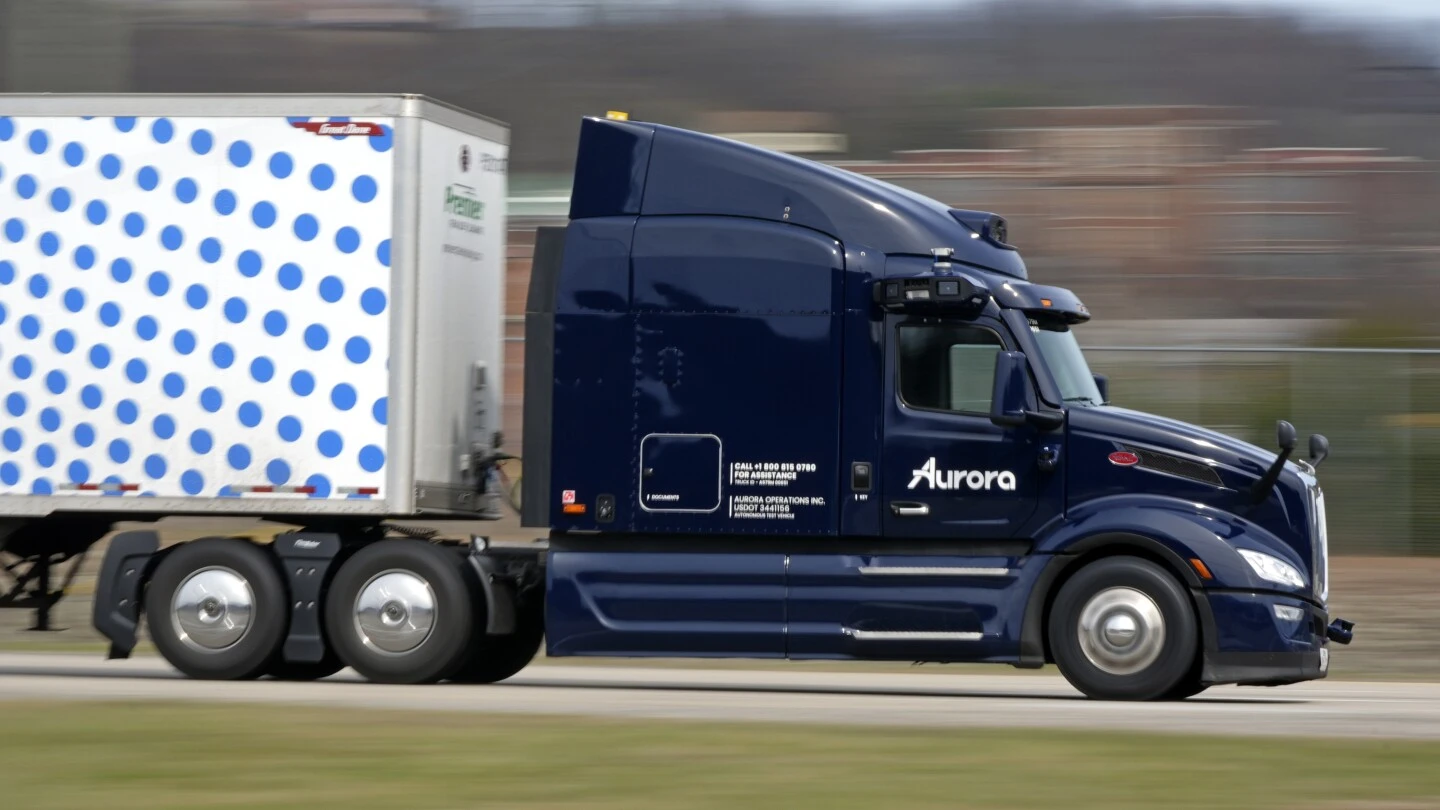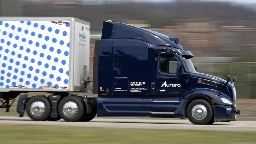Tractor-trailers with no one aboard? The future is near for self-driving trucks on US roads
Tractor-trailers with no one aboard? The future is near for self-driving trucks on US roads

apnews.com
Tractor-trailers with no one aboard? The future is near for self-driving trucks on US roads

